Off the beaten path - Lanterns of the Dead in Krakow
The benefit of local tourism is that you have time to discover the area where you live unhurriedly. You can see more and more details; what seemed familiar and commonplace takes on a deeper dimension. It was the case with my last discovery - the Lanterns of the Dead, which look like historic roadside shrines. In general, shrines in Poland are ubiquitous, so I usually don't pay much attention to them. I had no idea some of them once had a unique function.
Not long ago, during one of the usual walks, I noticed a stone shrine, which seemed different from the ones I had seen so far. After returning home, I checked its history, and so I found
the Lanterns of the Dead trail.
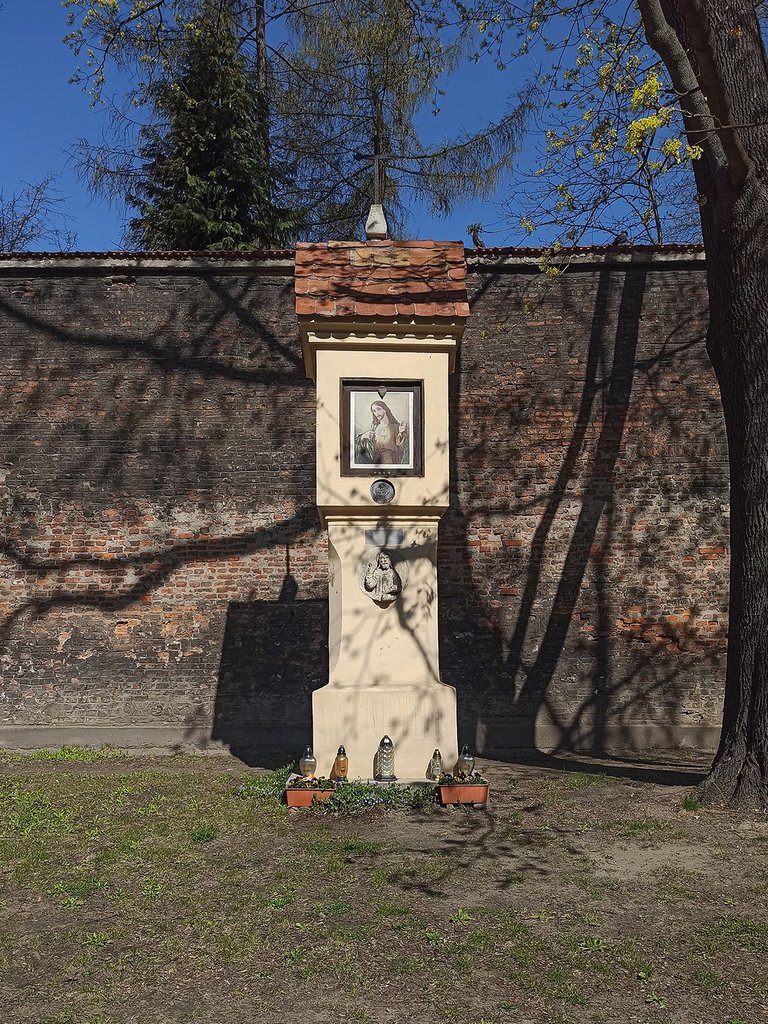
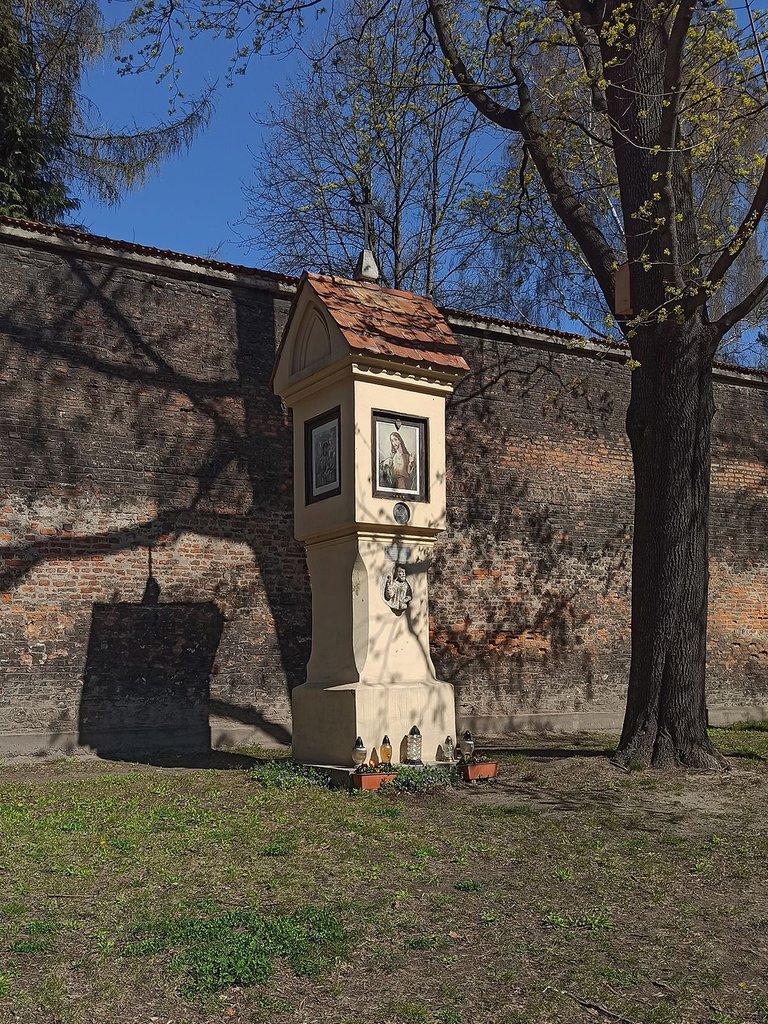
Lanterns of the Dead appeared in Europe in the 12th century. They were built of stone and resembled small columns or turrets, with holes or windows on the top. Inside there was a vertical shaft - this way, a light source (an olive oil lamp or a candle) was pulled to the top. They looked like small lighthouses. But where did the unusual name come from: the Lantern of the Dead? They were initially built near churches and monasteries; in cemeteries, hospitals, and shelters. Wherever it hosted death or danger, they warned passers-by and illuminated the darkness where repenting souls and ghosts could hide. Later, such poles began to be erected next to busy roads, so they acted as signposts.
It turned out that there are at least ten such objects in Krakow - I decided to find them. I invite you for a walk around the center of the old town, during which you can see five shrines that used to be Lanterns of the Dead.
Let's start with the oldest one, a gothic turret dating back to the 14th century, which originally stood in front of the hospital for lepers. After it was closed in the 19th century, the lantern was moved to the church of St. Nicholas on Kopernik Street.
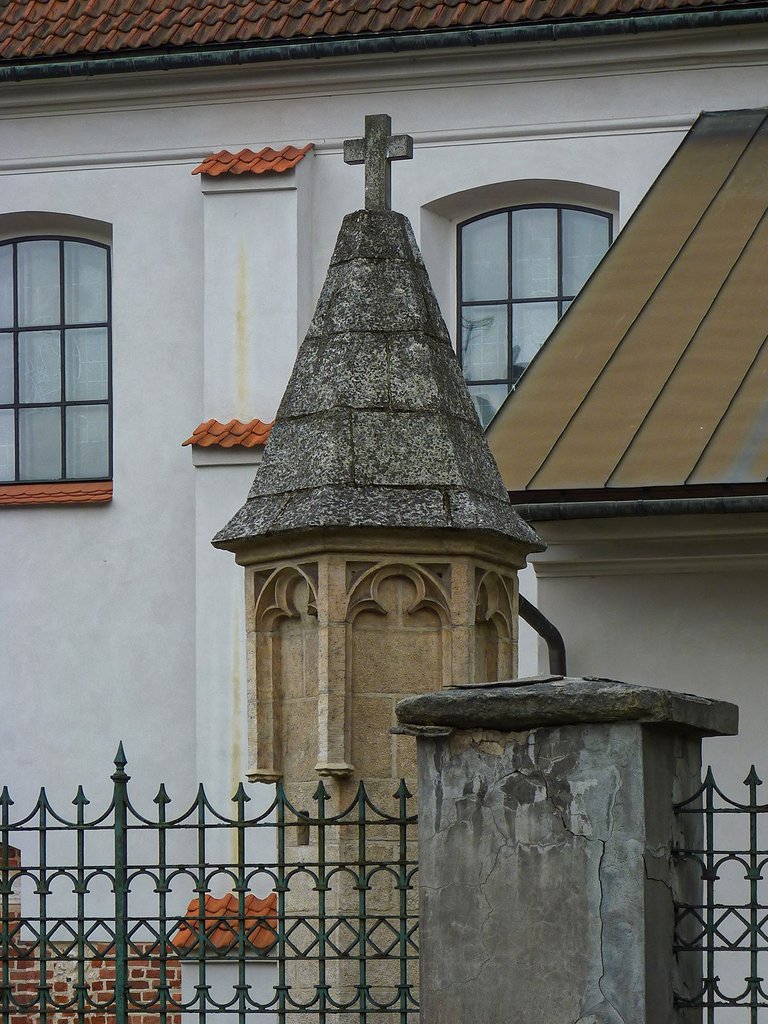
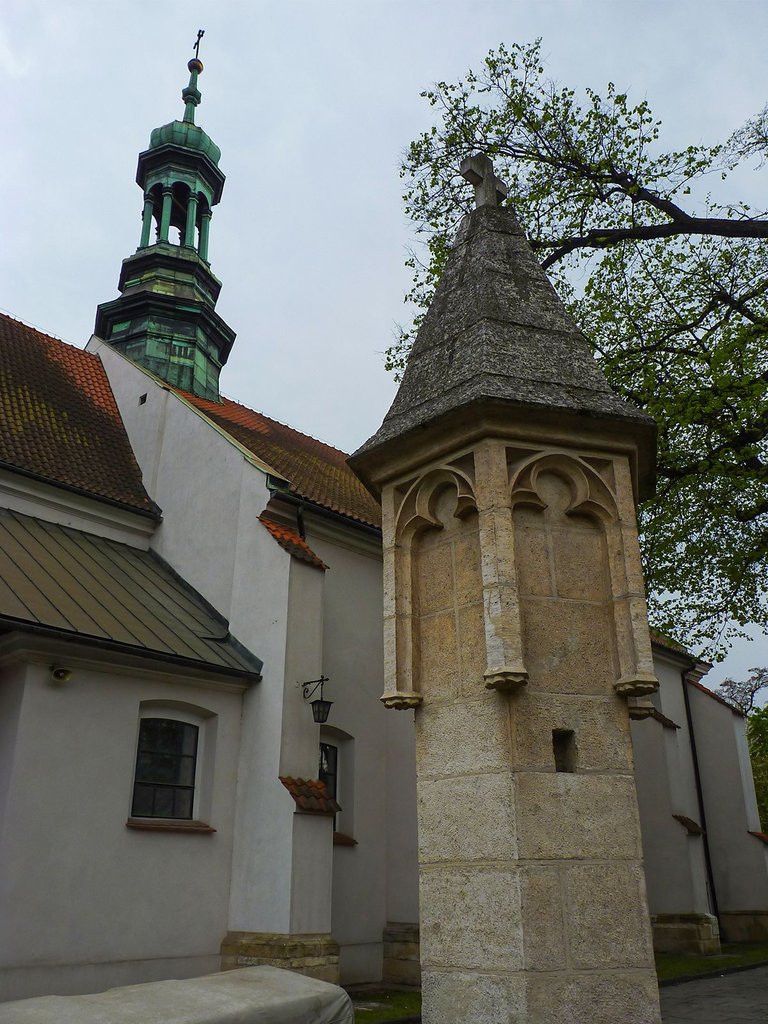
The openings in the upper part (through which the light came out) were bricked up during the move. The lantern has become blind.
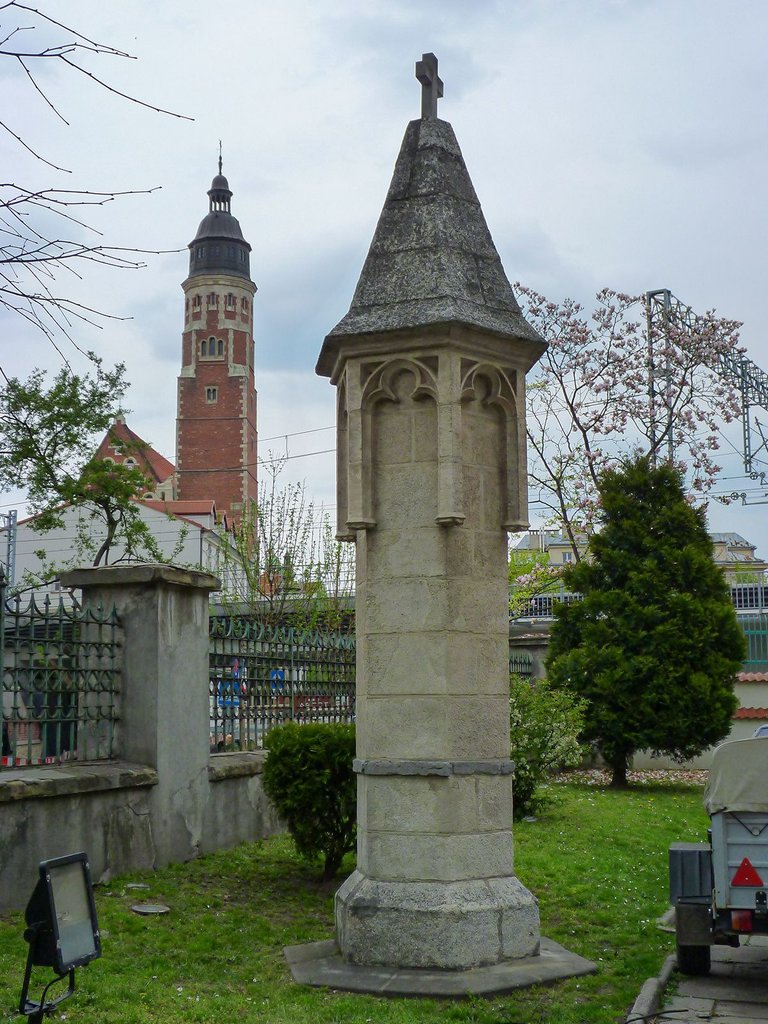
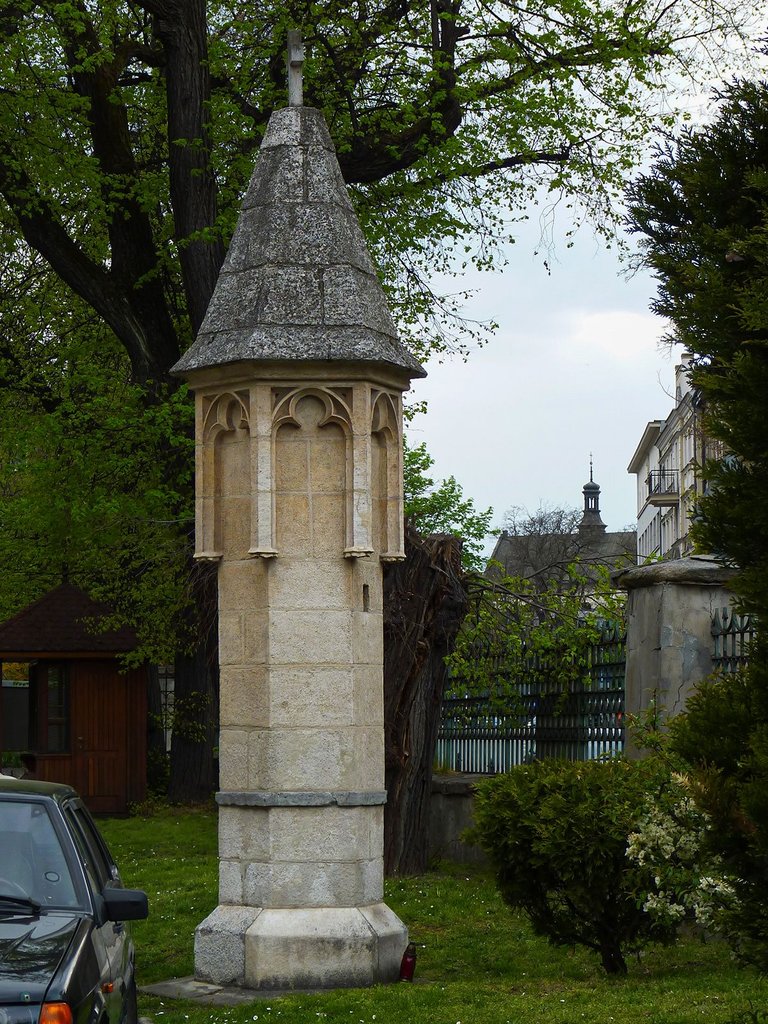
On the same street, there is a shrine, which I showed you at the beginning. It was built under the monastery walls in 1812.
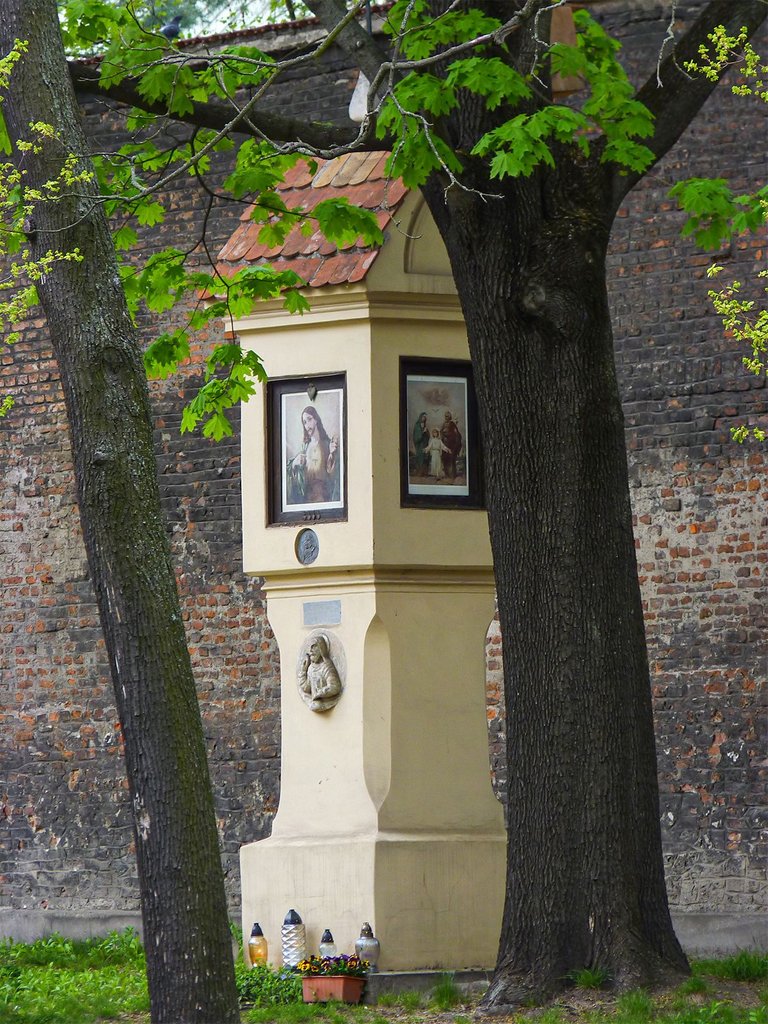
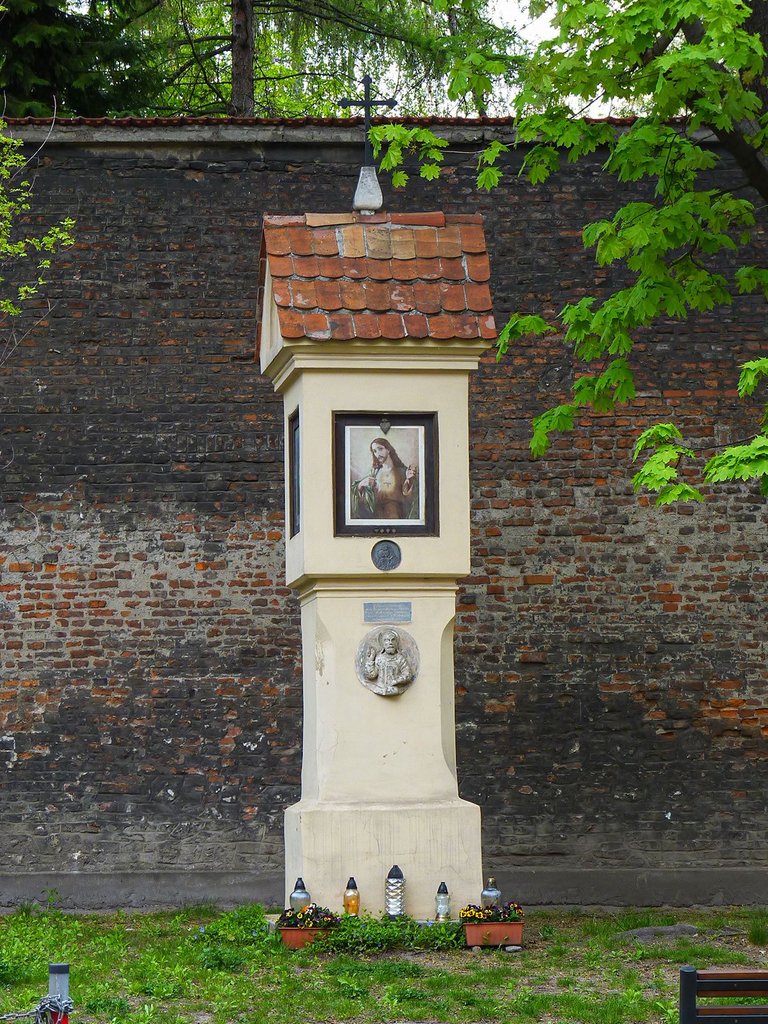
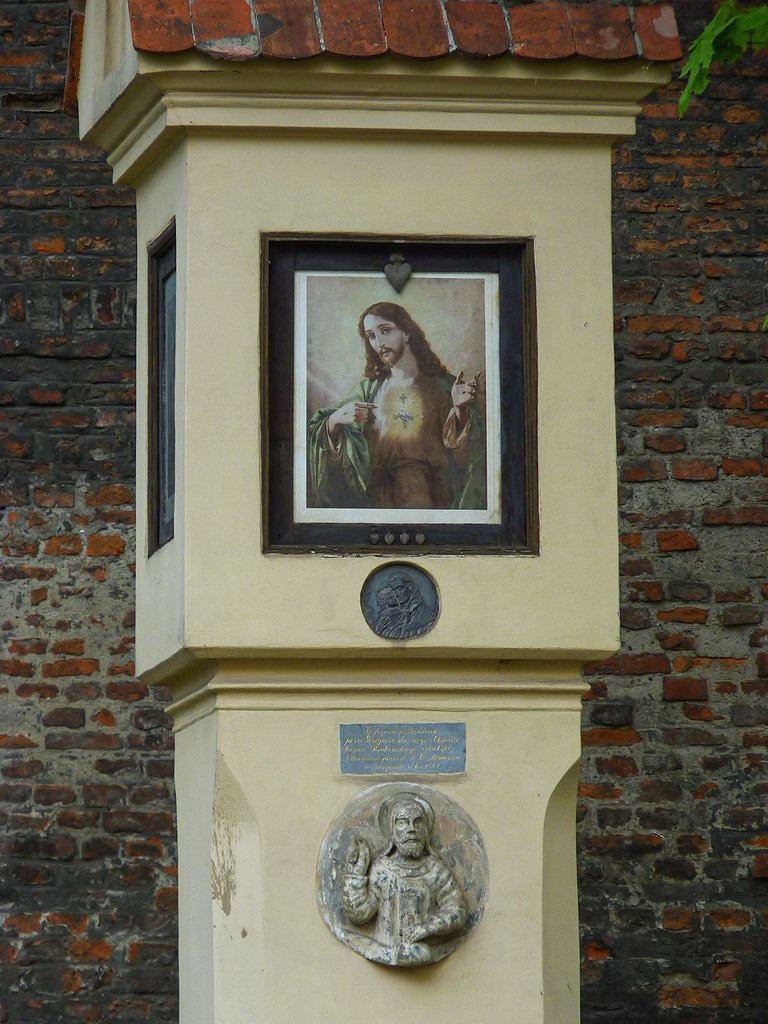
As you can see, this shrine also no longer illuminates the area - today, there is no such need. Almost all lanterns now have figurines or pictures at the top instead of light.
I found only one exception, in the park surrounding the old town (Planty). St. Gertrude's shrine comes from the 17th century and originally stood next to the hospital; it was moved here in the 19th century. There is still a lantern at the top; I have to check if it shines in the evening.
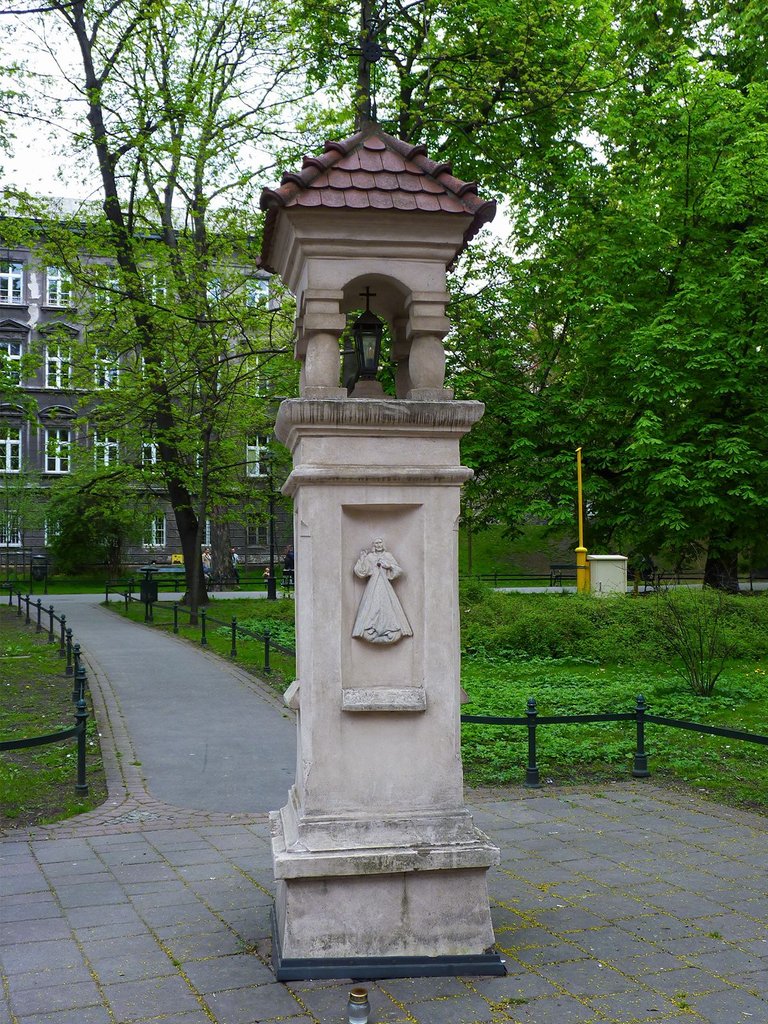
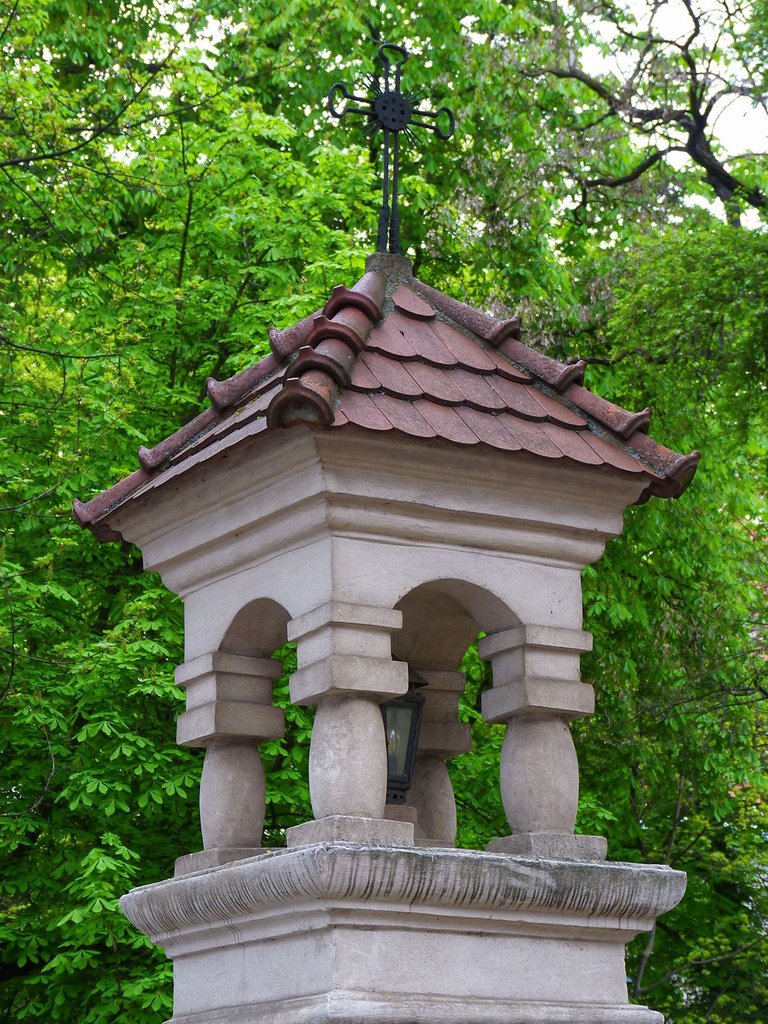
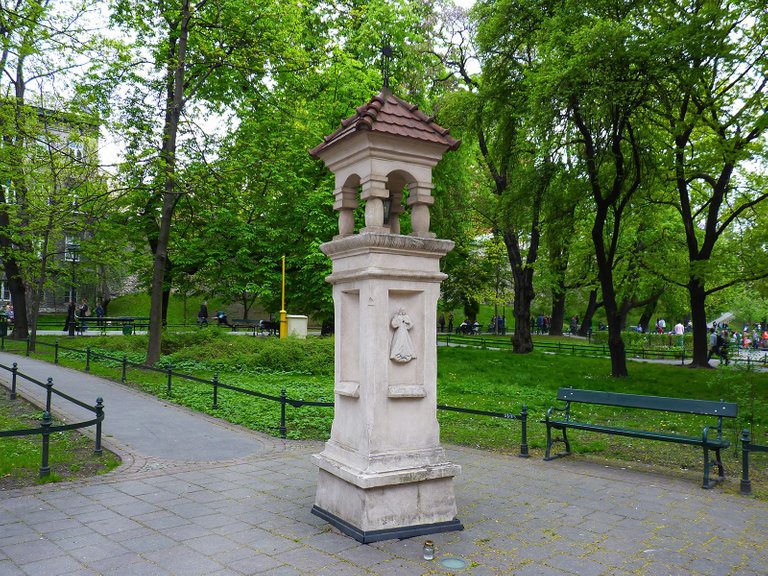
Let's go further! On the way to the next object, which is on the other side of the Vistula River, you have to pass the Wawel Castle.
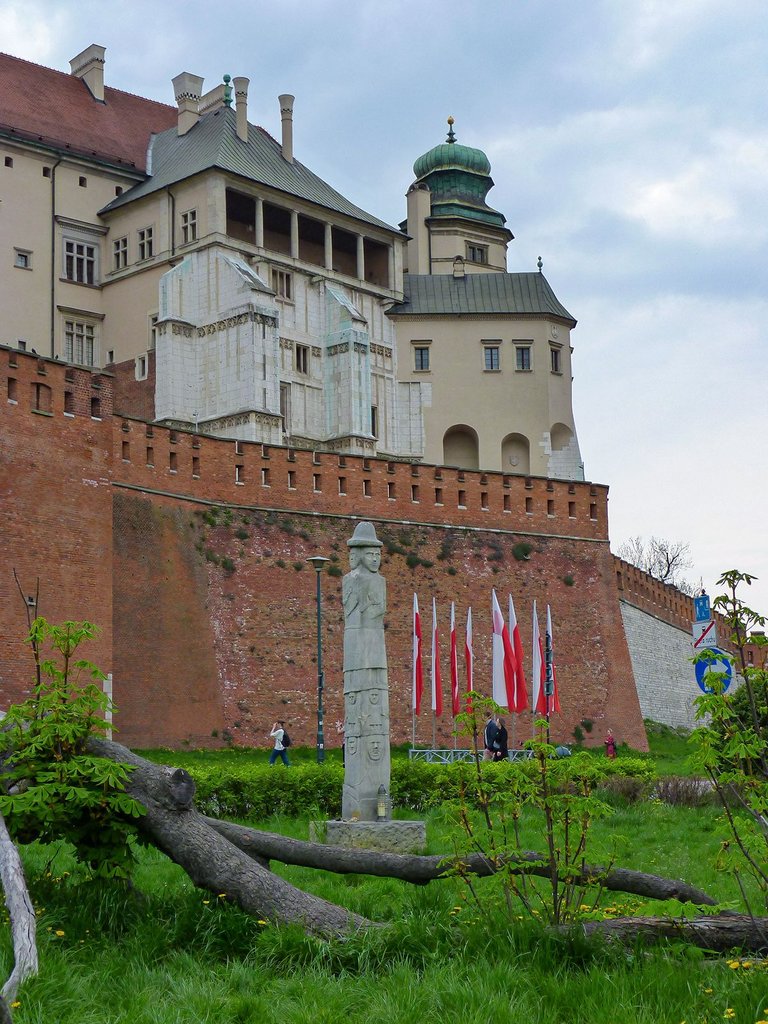
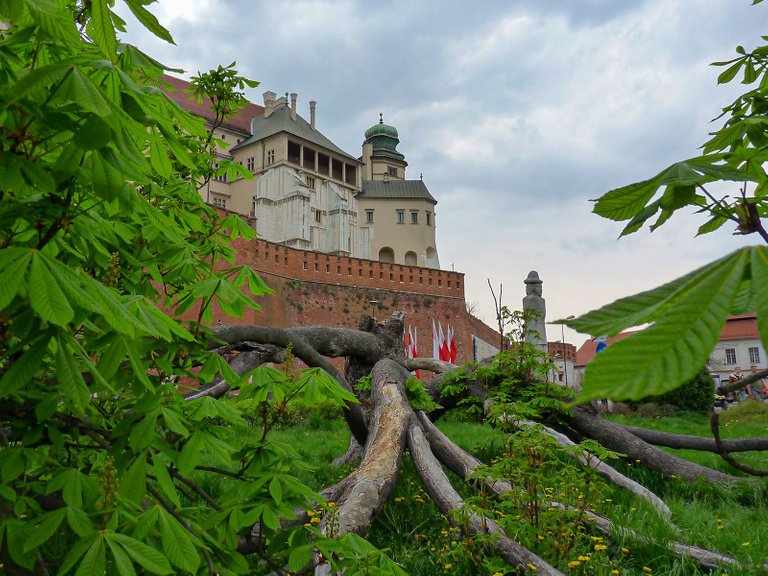
Walking by, it is worth paying attention to the statue of Światowid - a Slavic deity. It's a copy of the original sculpture (dated to the 10th century AD), which was excavated in the mid-nineteenth century from the Zbrucz river (today, the territory of Ukraine). The original you can see in the Archaeological Museum in Krakow.
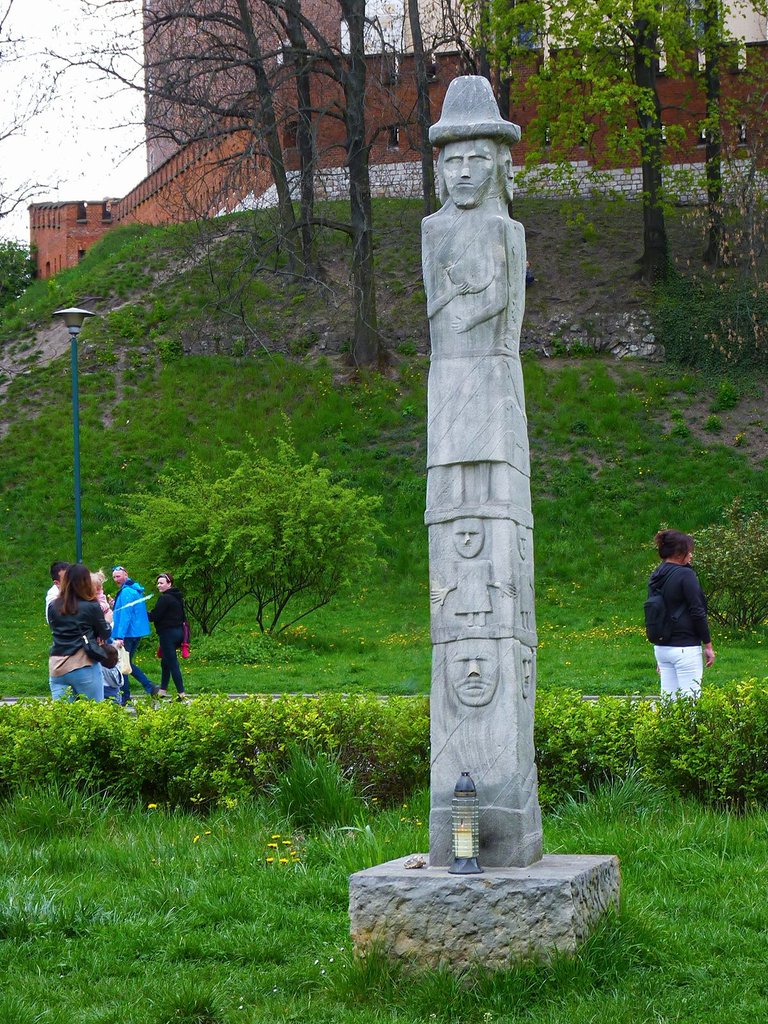
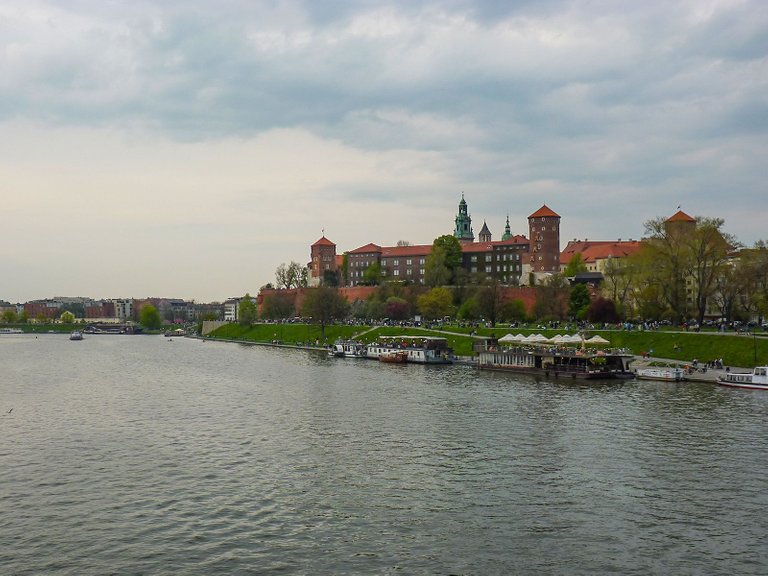
After crossing the bridge over the Vistula River and passing the ICE congress center, we can see our goal - the so-called Dębnicki Pale. It seems lost among busy streets and modern buildings. It's estimated that it was built in the 16th or 17th century. Initially, it stood in the choleric cemetery on the road leading to the Tyniec Abbey.
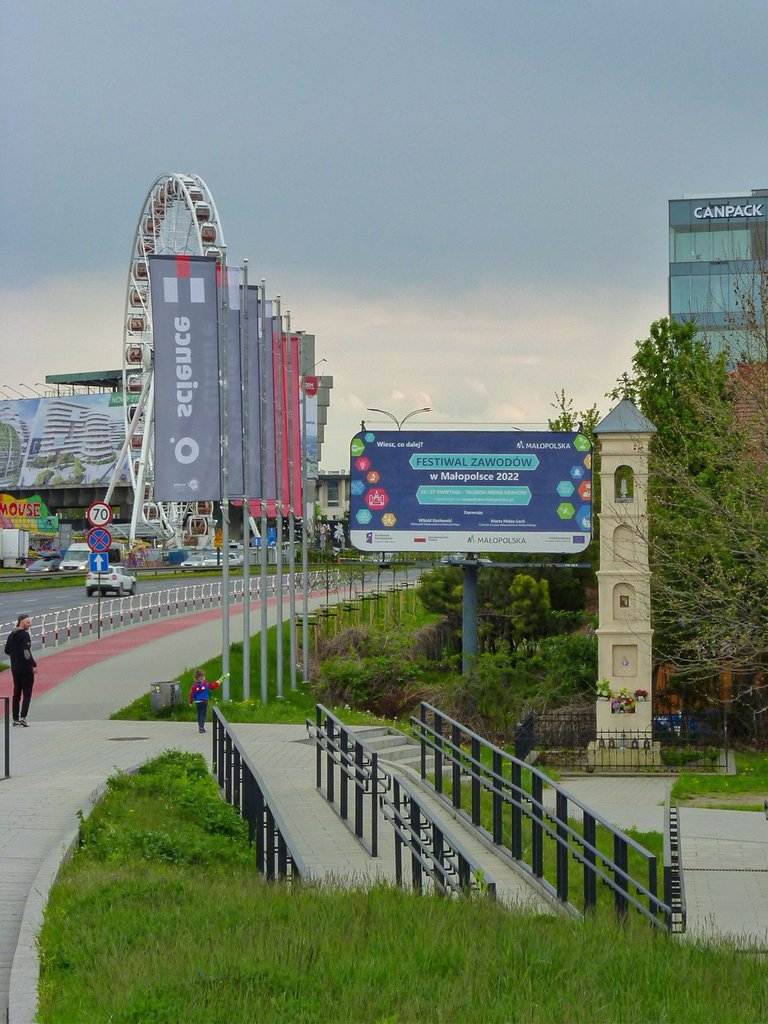
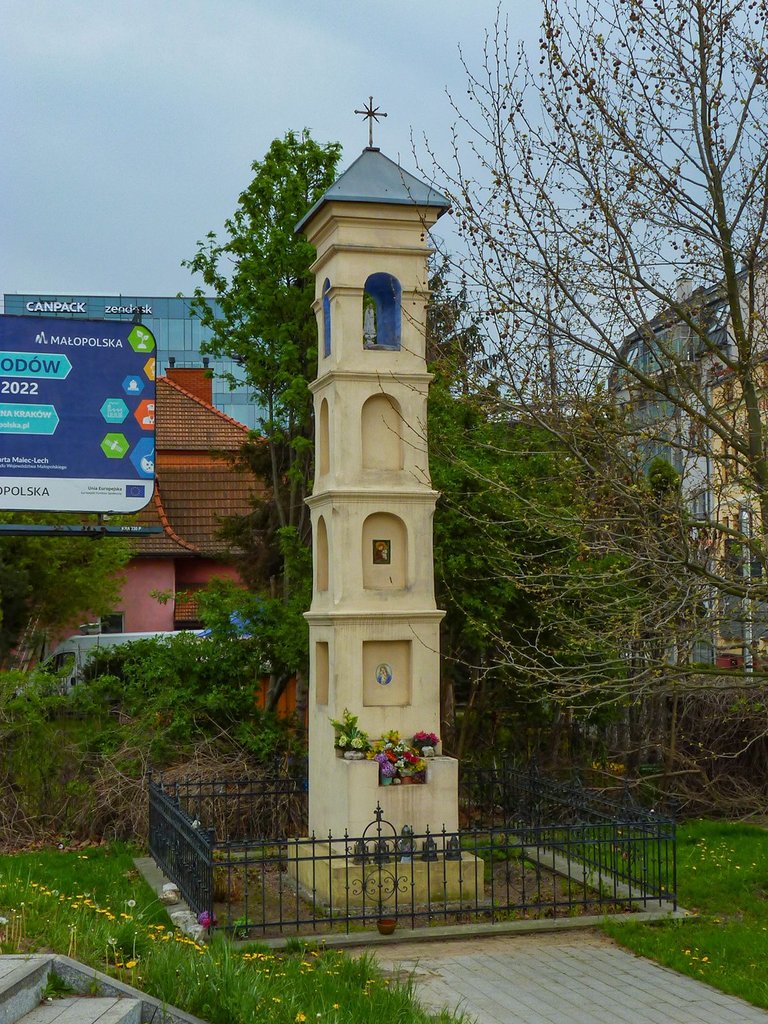
This lantern/shrine is the tallest one I saw while walking - it is about 5-6 meters. On its top, there is a little statue of the Virgin Mary.
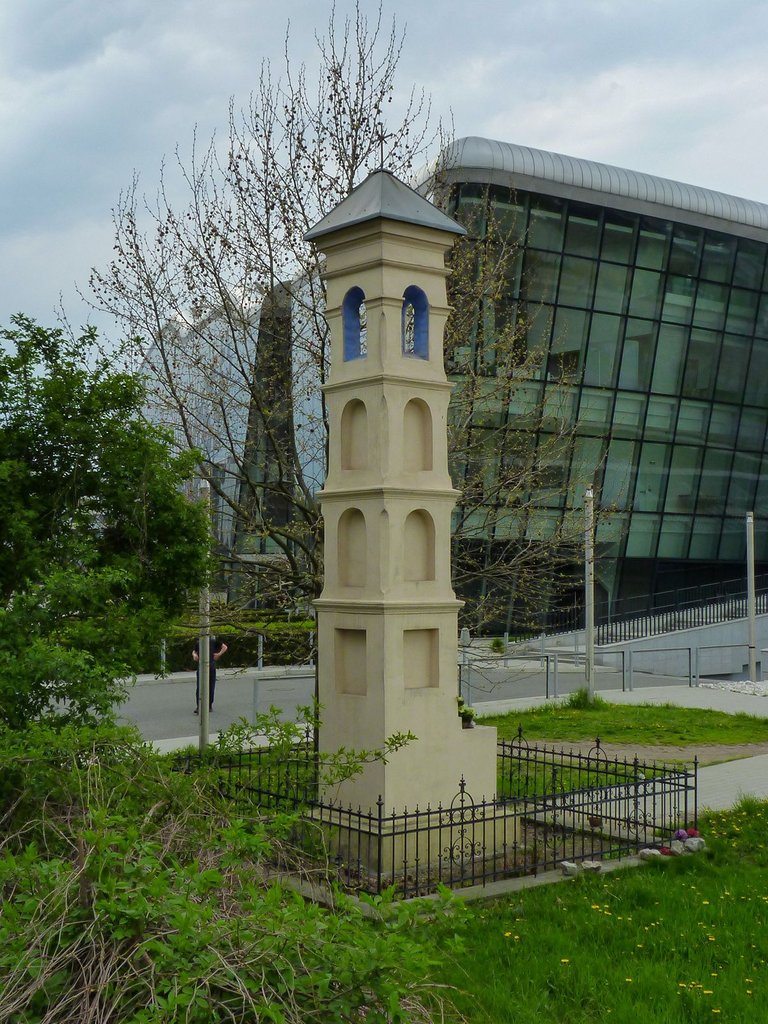
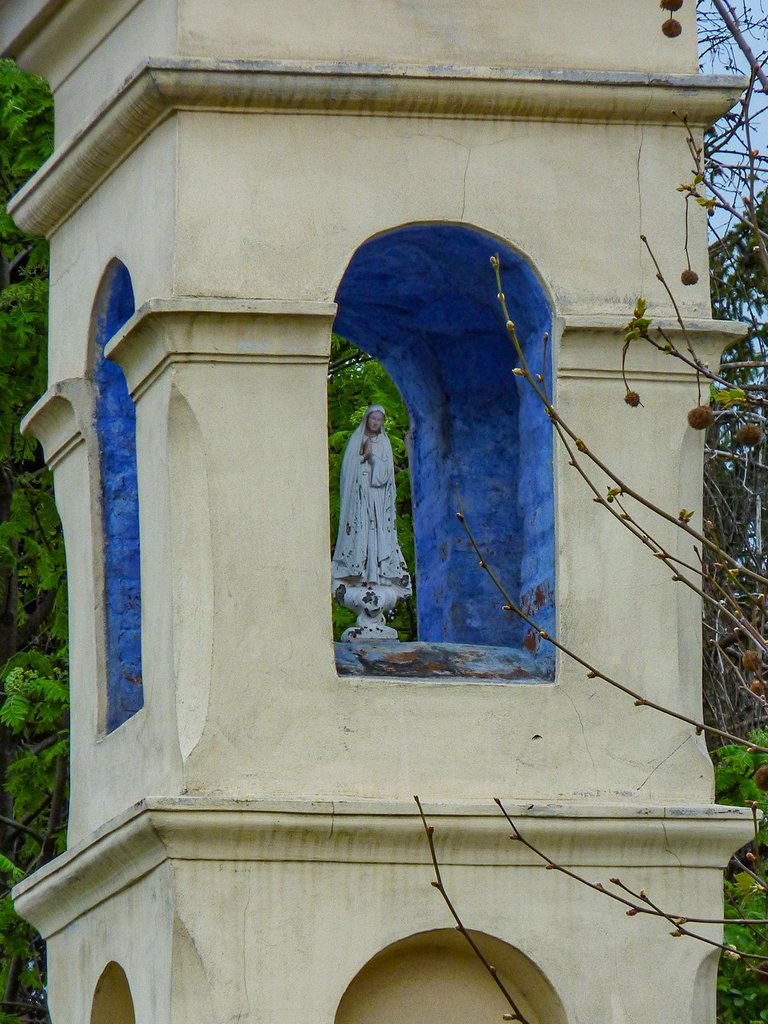
I ended my walk in Krakow Park.
I have passed this shrine many times, and it has always caught my eye. It's gorgeous, decorated on all sides with figures of saints, but I never have enough time to appreciate that.
Finally, I stopped for a while.
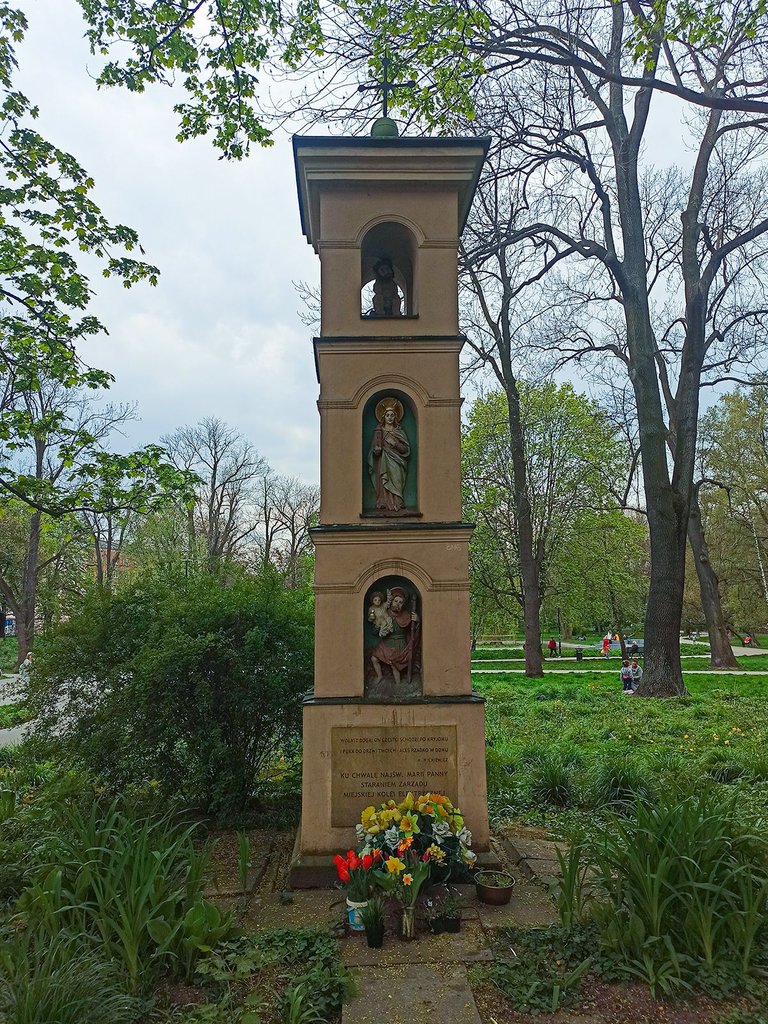
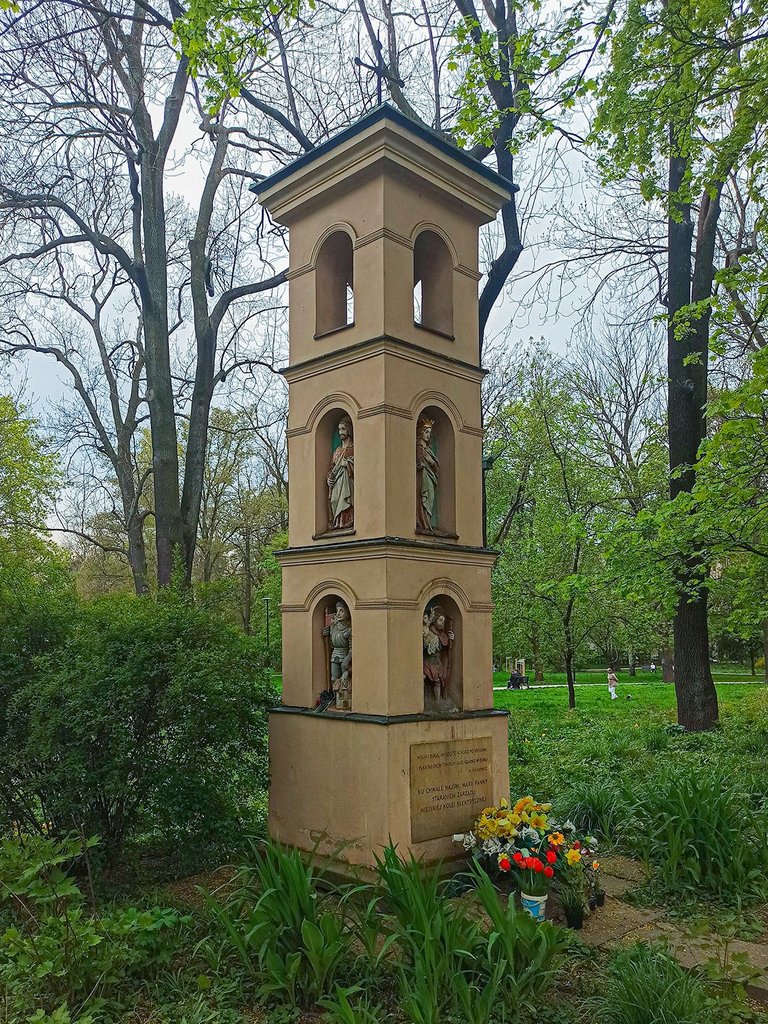
Unfortunately, I haven't found information about the construction date, but compared to other objects of this type in Krakow, I bet on the 17th century.
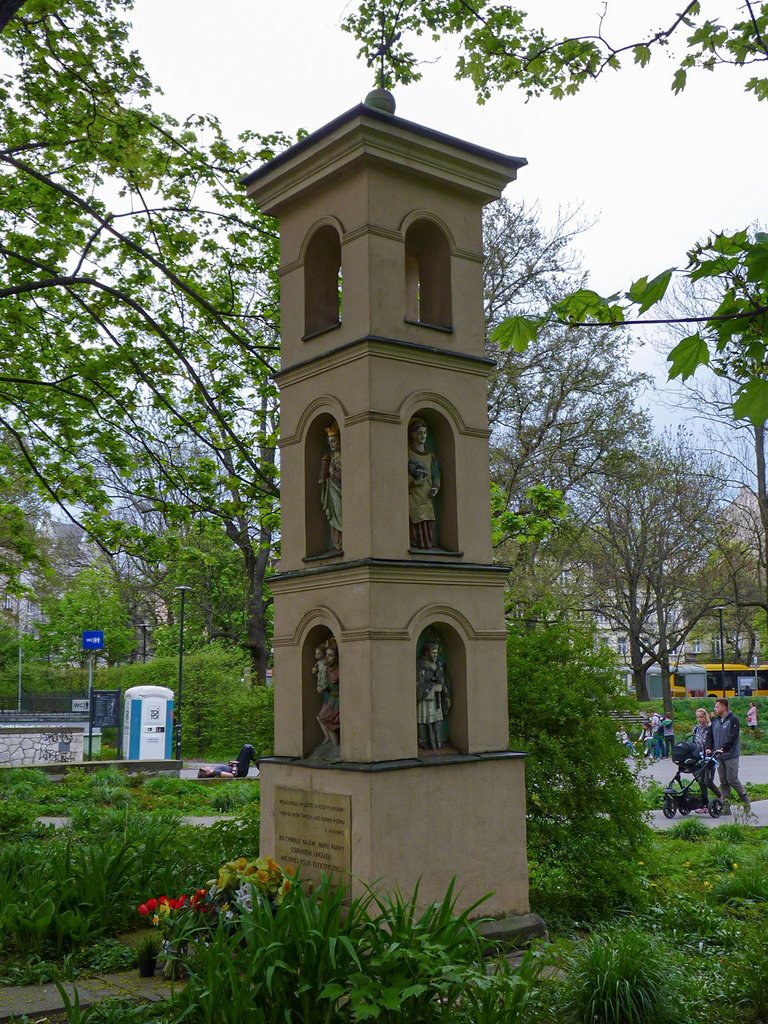
It is the last stop of today's trip. There are still five Lanterns of the Dead left to find (which I know about), but I leave it for the next walk. Although they are just one of the many relics of the past, I imagine how vital function they played in a world without electricity. If a modern man suddenly traveled back to those times, he would be like a blind man. Imagine all those dark streets, roads, and cemeteries. No wonder people were afraid of ghosts and ghouls!


Congratulations, your post has been added to Pinmapple! 🎉🥳🍍
Did you know you have your own profile map?
And every post has their own map too!
Want to have your post on the map too?
Hiya, @ybanezkim26 here, just swinging by to let you know that this post made it into our Honorable Mentions in Daily Travel Digest #1546.
Your post has been manually curated by the @pinmapple team. If you like what we're doing, please drop by to check out all the rest of today's great posts and consider supporting other authors like yourself and us so we can keep the project going!
Become part of our travel community: